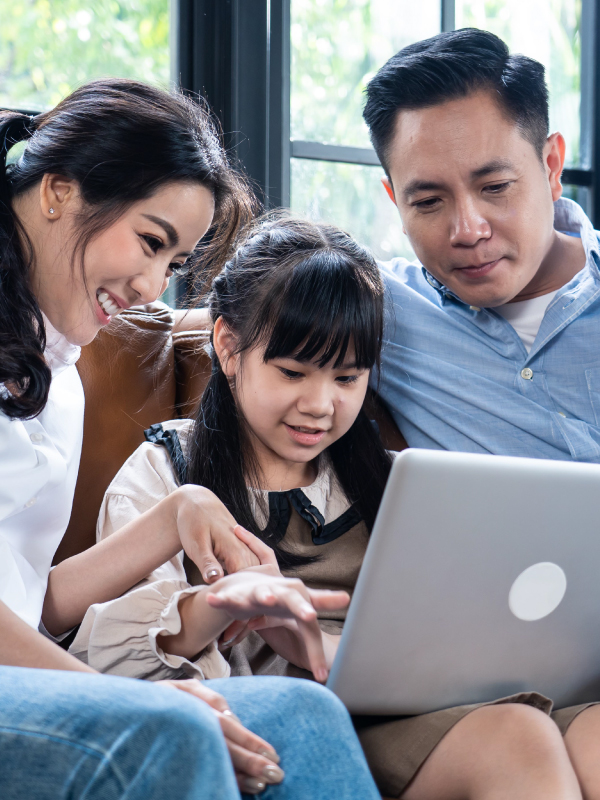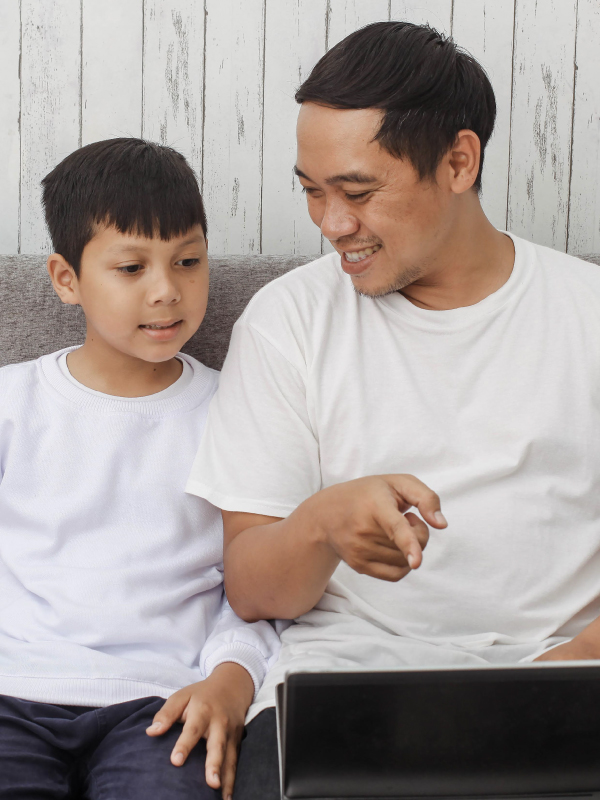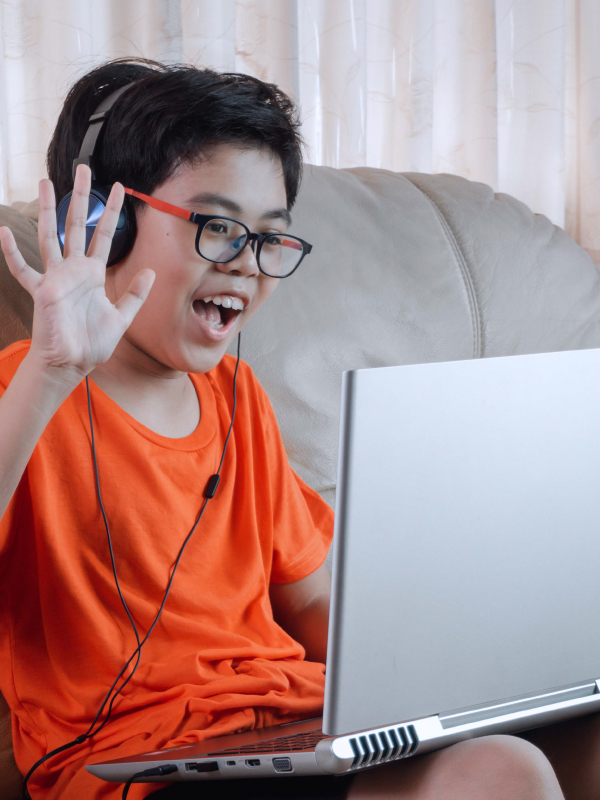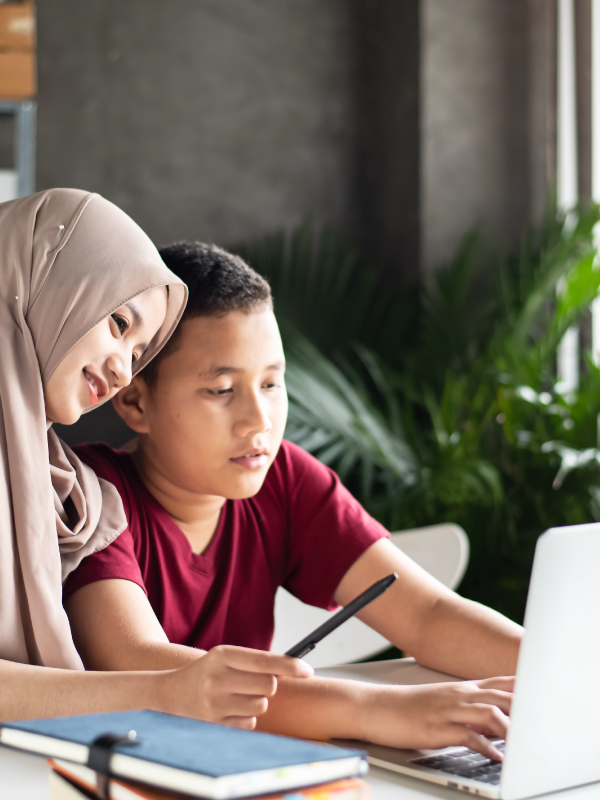Dive into our repository of resources
developed by experts for various audiences
Dive into our repository of resources developed by experts for various audiences
Our learning modules are aimed at empowering people to think critically about their digital behavior.
The We Think Digital program is designed to be delivered as either a full curriculum or as standalone lessons in both high-tech or low-tech environments. The lessons are scripted and provide guidance on how you can prepare for and deliver them in formal and informal settings. They are also open-ended so that you can modify them to fit the needs of your learners.
Use our resources to start a conversation about digital citizenship and wellbeing with your child. These tools will teach your child about the information, behaviors, and skills young people need to safely navigate the internet and use its resources to positively influence the world around them.

Digital Foundations
The lessons and activities in this section help learners understand how to get connected and use the internet and other platforms effectively. The lessons also help learners protect their data and information (and that of others), as well as their digital devices and assets.

Digital Wellness
The lessons and activities in this section help learners explore their identities, engage with others (both individuals and the larger collective) empathically, ethically, and positively, and counteract the risks the digital world may come with to protect their physical and mental health.

Digital Engagement
The lessons and activities in this section help students interpret cultural and social differences, respond and engage respectfully, and evaluate, create and share different types of media content. Skills addressed: context, information quality, and media literacy.

Digital Empowerment
The lessons and activities in this section help students participate in public matters and advocacy around issues they care about. Skills addressed: civic engagement and content production.

Digital Opportunities
The lessons and activities in this section help students learn the skills they need to fully leverage the opportunities the digital world may offer. This may include the ability to understand and take part in conversations around artificial intelligence, understand and apply computational concepts, engage in data creation, collection, interpretation and analysis, and navigate economic activities online and offline.
Search through our resource library sorted by audiences and topics
What else does We Think Digital offer?
Our goal is to host a collection of lessons for facilitators. This useful and engaging infrastructure helps facilitators browse, find, and download content in ways that work best for them in training.
Who are these lessons meant for and how were they created?
The lessons are drawn from the resources of several expert partners with experience designing content and curriculum. Our resources are age-agnostic. The main curriculum is modular with step-by-step instructions so teachers or faciliators can decide which topics matter the most to their audience(s).
What does a lesson look like?
Each lesson is scripted but provides room for facilitators to adapt the content to fit the needs of learners and their learning environments. The lessons serve both high-tech and low-tech communities. Many of the lessons have been developed for learning settings with little to no internet access.